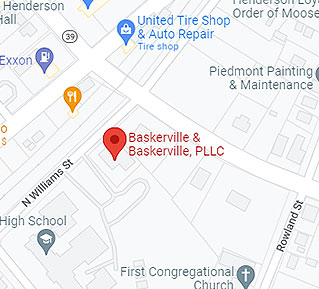 People make decisions emotionally – it’s understandable. But if you fight a ticket and the judge finds you guilty of speeding, (even for going 56 in a 55-mile-an-hour zone), you’re going to get two points on your license and an increase in your insurance premium.
People make decisions emotionally – it’s understandable. But if you fight a ticket and the judge finds you guilty of speeding, (even for going 56 in a 55-mile-an-hour zone), you’re going to get two points on your license and an increase in your insurance premium.
How To Find The Best Outcome For Your Case
I often have clients say, “I want to fight this thing, this is wrong.”
But, sometimes, I have to explain to them, “Consider what the actual benefit could be if you take an online driving course.” By spending only 4 hours of online training, you may find a better outcome than you ever could hope to get by fighting the case in court.
Without the course, you might waste all your time going to trial. With the course, I could negotiate a plea down to a non-moving violation – which would result in zero points on your license and no increase to your insurance.
You can also help your circumstances by not getting any more tickets.
When negotiating with the DA, I’ll often use the angle that your offense was a mistake – a one-time thing brought about by extenuating circumstances.
But, if the DA sees that you are charged with the same thing again, they’ll ask “What happened to this being a one-time offense?” You can see how the argument falls apart quickly.
In short, the best way to help your traffic violation course is to not get any more tickets and attend a driving course.
Traffic Tickets Defenses In North Carolina
The most common legal defense to speeding in North Carolina lies in arguing that the radar was not operating properly.
Another defense lies in where the speed limit changes…
For example, consider that an officer wrote you in a 55mph zone, but they actually encountered you in a 65mph zone. In this case, I will get the GIS surveys and maps to try to pinpoint exactly what the zone was that the person was giving this citation.
By arguing that you were not in violation of the actual posted speed limit, you may be able to see your charges dismissed entirely.
What Can You Expect When Bringing Your Case To Trial
You should plan on appearing in court if you want to plead not guilty. Additionally, you should expect to appear in court two to three times before your case is tried.
When your case is finally called around and you go to trial, you won’t have to say anything – your attorney will do all the talking.
You’ll know that your case has come up when the judge calls it out…
The Scene Of A Traffic Violation In Court
In the courtroom, the judge announces, “State of North Carolina vs. John Doe. Come around John Doe.” John Doe comes around and goes to the defense attorney’s table.
The prosecutor will be on the other side of the courtroom. She says, “John Doe, you’re charged with speeding 70 in a 55, how do you plead?” John Doe responds, “Not guilty.”
The trial begins. The prosecutor calls out, “I call Officer Johnson to the stand”.
Officer Johnson goes up to the stand, puts his hand on the Bible, and promises “to tell the truth so help him, God,” and begins answering direct examination questions from the prosecutor.
It goes like this…
“Officer Johnson, what department do you work for?”
“How long have you been working in this department?”
“Were you working in this department on May 1st of 2022?”
“On this day, did you have a chance to come across Mr. John Doe?”
“Tell us about what happened when you came across John Doe,” and so on…
Officer Johnson responds, “Well, I was doing patrol in the area and I saw a white Cadillac moving at a high rate of speed. When I clocked it on my radar, it was going 70 miles an hour. I knew that we were in a 50-mile-an-hour zone and so I activated my emergency lights and got behind the car…”
The officer will continue to answer further questions from the prosecutor. Then, Mr. Doe’s defense lawyer has a chance to ask questions during what’s called cross-examination.
John Doe’s attorney asks, “Officer, you said that you clocked my client with the radar, what’s the serial number on that radar?”
“Do you have your maintenance log with you today?”
“Would you let me take a look at that log?”
“Now, this log is saying that you clocked someone else using this same radar 20 minutes prior to Mr. Doe’s reading. Can you state under oath, and beyond a reasonable doubt, that you did your preventive maintenance with a tuning fork after you clocked that person and before you used it to stop my client?”
The officer answers Mr. Doe’s lawyer in cross-examination, and everyone sits back down.
Then, the district attorney makes her closing argument, “Judge, you heard the testimony, this man is guilty.”
Then, Mr. Doe’s defense lawyer makes his closing argument, “Judge, you heard the testimony, there’s a reasonable doubt as to what the speed limit was out there.”
Finally, the judge will pass the verdict: “Guilty” or “Not Guilty”.
How This Pertains To You
You do not have to testify during your trial, because you have a right to remain silent.
If you do choose to testify, you will be subject to cross-examination from the prosecutor. During their cross-examination, the prosecutor can ask you questions with the intent to undermine your credibility – just like your lawyer will be doing when questioning the officer who stopped you.
You must remember: you have a vested interest to not say anything misleading.
To help your case, you must tell the truth under oath. What’s more, your attorney cannot put you on the stand with the knowledge that you will tell a lie – doing this is called the subornation of perjury, and it is a crime in and of itself.
If you are on the stand, you must tell the truth – and if the truth would incriminate you, it would be the same as pleading guilty on the stand. So, it’s often best to retain your right to remain silent.
For more information on Traffic Violations In North Carolina, an initial consultation is your next best step. Get the information and legal answers you are seeking by calling (252) 572-4495 today.

(252) 572-4495
